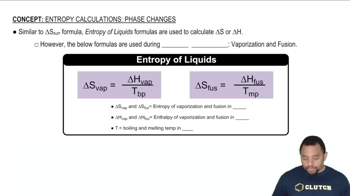Textbook Question
Consider the reaction: 2 NO(g) + O2(g) ⇌ 2 NO2(g) The following data show the equilibrium constant for this reaction measured at several different temperatures. Use the data to find ΔH°rxn and ΔS°rxn for the reaction.
1155
views
1
comments





